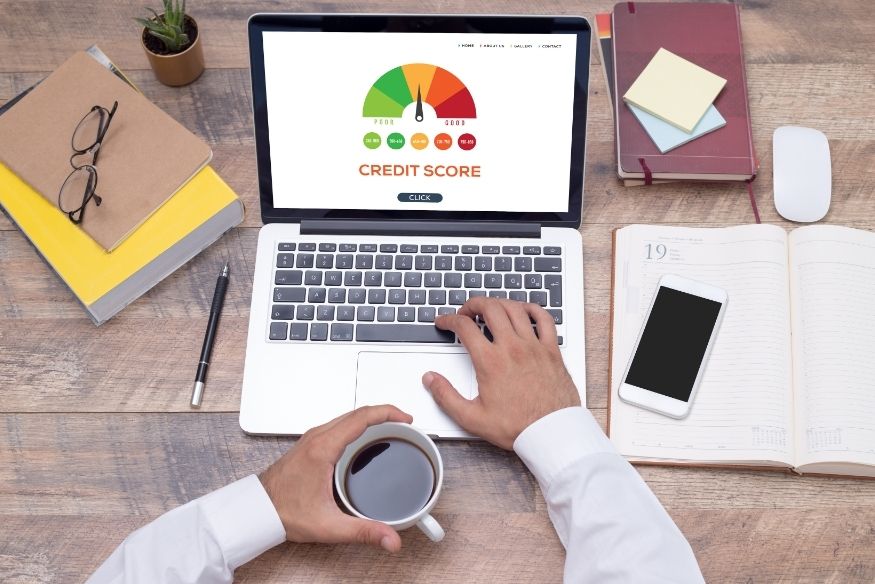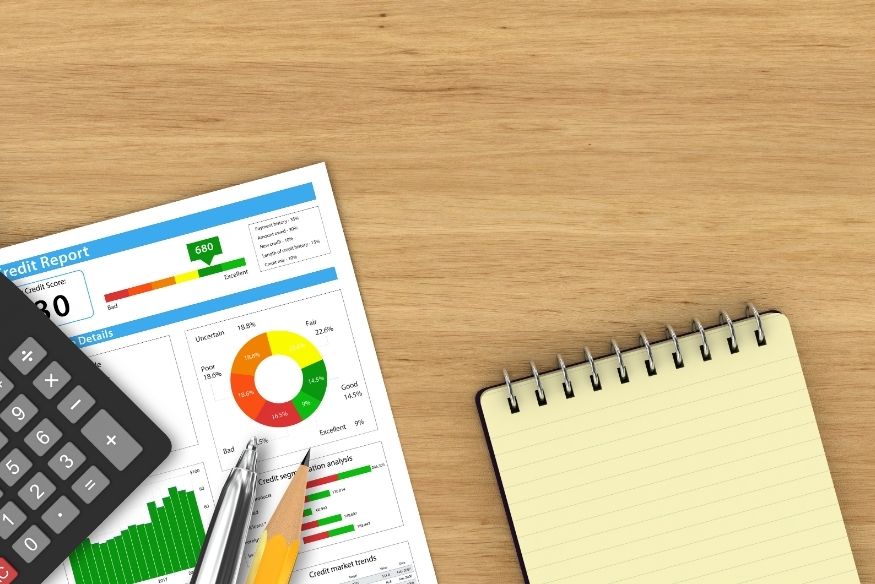Knowing your financial health is key in today’s world. Credit scores are important for getting loans and credit on good terms.
These scores are based on your credit report. They show if you’ll pay your debts on time. With more global finance, it’s key to know how credit scores affect your money health everywhere.
When you apply for a mortgage in Helsinki or a loan elsewhere, your credit score importance is huge. It affects not just if you get the loan but also the interest rates you’ll pay.
Key Takeaways
- Credit scores are crucial for determining loan and credit approvals.
- Global credit systems are becoming more interconnected.
- Understanding your credit score is vital for financial health.
- Credit scores influence the interest rates you’re offered.
- A good credit score can significantly improve your financial opportunities.
The Fundamentals of Credit Scoring Systems

Understanding credit scores is key to managing your finances. Your credit score shows how well you handle money. It’s important for getting loans and credit cards.
What Is a Credit Score and Why It Matters
A credit score is a three-digit number that shows how trustworthy you are with money. Lenders use it to decide if they should lend to you and at what interest rate. Credit scores are based on your credit history, including your past payments and accounts.
How Credit Bureaus Collect and Process Your Data
Credit bureaus like FICO and VantageScore get your credit history from banks and credit card companies. They use special algorithms to turn this data into a score. Credit reporting is vital for this process, as it gives them the info they need.
The Numerical Ranges and What They Mean
Credit scores range from 300 to 850, with higher scores being better. Here’s what each range means:
| Credit Score Range | Credit Health |
|---|---|
| 300-579 | Poor |
| 580-669 | Fair |
| 670-739 | Good |
| 740-850 | Excellent |
Knowing these numerical ranges helps you understand your credit health. It guides you in making choices to improve it.
Credit Scores Worldwide: A Global Perspective
Exploring the world of credit scores is complex. It’s important to know how different regions handle credit scoring. This varies due to local financial practices, laws, and cultural differences.
North American Credit Systems
In North America, FICO and VantageScore lead the way. FICO scores range from 300 to 850 and are key for lenders to judge creditworthiness. VantageScore offers a different scoring range and approach.
| Credit Scoring Model | Scoring Range | Key Features |
|---|---|---|
| FICO | 300-850 | Widely used, considers payment history, credit utilization, and credit age |
| VantageScore | 501-990 | Considers trended credit data, provides a more nuanced view of credit behavior |
European Credit Reporting Variations
Europe’s credit reporting is varied. Each country has its own way of handling credit scores. Some, like the UK, have well-established systems, while others are still building theirs.
Asian Credit Scoring Approaches
Asia’s credit scoring is quickly changing. Digital lending and new data sources are driving this growth. Countries like China and India are creating their own scoring models, using data not seen before.
Emerging Markets and Their Credit Development
Emerging markets face big challenges in credit scoring. They struggle with limited credit history, weak laws, and a lack of standardization. This makes building strong credit scoring systems hard.
Knowing about these global differences is key for those working across borders. By understanding credit scoring variations, you can make smarter financial choices.
The Finnish Credit System: What Residents Need to Know
The Finnish credit system is based on negative reports. This affects how your credit score is figured out. It mainly looks at late payments, debts, and defaults.
Finland’s Negative-Based Credit Reporting System
In Finland, credit reports focus on the bad stuff. This is different from systems that also look at good credit habits. Suomen Asiakastieto, a big credit bureau, gathers and checks this bad data. It helps show if someone or a business is trustworthy.
Key aspects of Finland’s negative-based system include:
- Recording of payment defaults and late payments
- Focus on negative credit events
- Impact on credit scores based on negative information
Suomen Asiakastieto and Other Finnish Credit Bureaus
Suomen Asiakastieto is a top credit bureau in Finland. It’s in charge of collecting and studying credit data. Other bureaus also work in Finland, offering different services and data analysis.
| Credit Bureau | Services | Data Focus |
|---|---|---|
| Suomen Asiakastieto | Credit reporting, credit scoring | Negative credit data |
| Other bureaus | Varied credit services | Both positive and negative data |
Payment Default Records (Maksuhäiriömerkintä) and Their Impact
Payment default records, or “maksuhäiriömerkintä” in Finnish, are key in credit reporting. They happen when someone or a business can’t pay on time. This really hurts their credit score.
The impact of payment default records includes:
- Lower credit scores
- Reduced creditworthiness
- Potential difficulties in obtaining credit
Recent Changes in Finnish Credit Legislation
Finland has made new laws to better its credit reporting. These changes aim to make data more accurate and protect consumers. Knowing about these updates helps you understand the Finnish credit scene better.
Key legislative updates include:
- Enhanced data protection measures
- Stricter regulations on credit reporting agencies
- Improved consumer rights regarding credit data
Key Factors That Shape Your Credit Score
To boost your credit score, it’s key to grasp what affects it. Your credit score is a detailed metric shaped by several important elements. Each element has a specific weight in the overall score.
Payment History: The Foundation of Credit Trust
Payment history is the biggest factor, making up 35% of your FICO score. It shows if you pay on time, late, or if accounts are sent to collections. A strong payment history proves you’re a trustworthy borrower.
Credit Utilization: Managing Your Available Credit
Credit utilization is 30% of your FICO score. It’s the percentage of credit you use. Keeping this under 30% is advised. For instance, with a $1,000 limit, aim for a balance under $300.
| Credit Utilization Rate | Impact on Credit Score |
|---|---|
| Below 10% | Positive impact, shows responsible credit use. |
| 10%-30% | Generally considered good, but may vary by lender. |
| Above 30% | Negative impact, may indicate over-reliance on credit. |
Length of Credit History and Account Mix
The length of your credit history and the variety of credit types (like cards, loans, and mortgages) account for 25% of your FICO score. A longer credit history and a diverse mix can boost your score. They give a fuller view of your credit habits.
New Credit Applications and Hard Inquiries
New credit applications and hard inquiries make up the last 10% of your FICO score. Applying for too much credit quickly can hurt your score. It signals a higher risk to lenders.
Knowing these factors and managing them well can keep your credit score healthy. Focus on payment history, credit utilization, and credit history length. Also, be careful with new credit applications. This approach can improve your creditworthiness over time.
Practical Strategies to Build and Improve Your Credit

Building and improving your credit score is possible, whether you’re starting from scratch or recovering from damage. It involves smart financial habits like making timely payments and using credit wisely. By following these strategies, you can greatly improve your credit profile.
Starting Your Credit Journey from Zero
Starting with no credit history can feel overwhelming. But, it’s easy if you know the first steps. You can apply for a credit card or become an authorized user. Secured credit cards are also a good choice. They require a deposit and help you build a positive payment history.
Effective Habits for Credit Score Growth
To grow your credit score, you need to adopt good habits. This means paying on time and keeping your credit use low. Let’s look at some key techniques.
Timely Payment Techniques
Payment history is a big part of your credit score. To pay on time, set up automatic payments or reminders. Paying bills on time shows you’re responsible and can greatly improve your score.
Optimal Credit Utilization Practices
It’s important to keep your credit use under 30%. For example, if your credit card has a $1,000 limit, aim for a balance under $300. Low credit utilization shows lenders you can handle your credit well.
Recovering from Credit Damage
Recovering from credit damage is possible. It involves fixing negative marks on your report and looking into debt consolidation.
Addressing Negative Marks
Negative marks, like late payments or collections, can hurt your score. Start by disputing inaccuracies on your report. If the marks are correct, focus on making timely payments to prevent further damage.
Debt Consolidation Options
Debt consolidation can simplify your finances and help manage debt. Consider combining your debts into one loan with a lower interest rate and one monthly payment. This makes tracking payments easier and reduces the chance of missed payments.
Navigating Credit Scores When Moving Internationally
When you move to a new country, it’s more than just a change of address. You also enter a new credit world. Knowing how your credit score will change is key to keeping your finances healthy.
Relocating to Finland: Credit Considerations
In Finland, the credit system focuses on negative marks. This means your report will show defaults and bankruptcies. To build a good credit score, pay your bills on time and show responsible credit use.
Moving from Finland to Other Countries
When you leave Finland, your credit history might not be recognized in your new home. Each country has its own way of scoring credit. For example, some countries record all credit activities, not just the bad ones.
Building Credit in a New Country
Building credit in a new place takes time and planning. Open a local bank account and apply for a credit card. Paying on time will help you build a good credit history. Knowing the local credit rules is also important.
International Banking Relationships and Your Credit
Having banks in different countries can help your credit score. But, it’s important to know how these banks and credit agencies work together. Some banks might report your credit in several countries, affecting your score.
| Country | Credit Reporting System | Key Credit Factors |
|---|---|---|
| Finland | Negative | Payment history, credit utilization |
| USA | Both Positive and Negative | Payment history, credit utilization, length of credit history |
| UK | Positive | Payment history, credit account information |
Debunking Common Credit Score Myths
There’s a lot of confusion about credit scores. It’s time to clear up the myths. Many people have wrong ideas that can harm their financial choices and credit score.
Checking Your Own Score Doesn’t Lower It
Many think checking your credit score lowers it. But this is not true. When you check your score, it’s a soft inquiry. This doesn’t change your score. But, when a lender checks, it’s a hard inquiry. This can slightly lower your score.
The Truth About Closing Old Accounts
Some believe closing old accounts boosts their credit score. But, closing accounts can actually hurt your score. It can lower your credit utilization ratio and credit age. Both are key in scoring your credit.
Income’s Relationship to Credit Scores
Some think income affects credit scores. But, your income doesn’t count in credit scoring. What matters is how you handle your credit, not your income.
Joint Accounts and Spousal Credit Independence
Many think joint accounts link credit scores. But, your credit score is your own. Here are important points:
- Joint accounts can impact both scores positively or negatively.
- You are responsible for your own credit behavior.
- Creditors can report joint account activity to credit bureaus.
Knowing these facts helps you make better credit decisions. It improves your financial health.
The Evolution of Credit Scores Worldwide
Credit scores are changing all over the world. New technologies, different consumer habits, and the need for better risk checks are driving these changes. It’s important to keep up with these shifts.
Alternative Data Sources in Modern Credit Scoring
Old credit scoring methods use only a few data points, like payment history and how much credit you use. Now, new data like social media, online banking, and even utility bills are being added. For example, some lenders now look at rent payments when deciding if you’re creditworthy.
Artificial Intelligence and Predictive Analytics

Artificial intelligence (AI) and predictive analytics are making credit scoring better. AI can look at lots of data, find patterns, and guess credit risk better than old methods. This is great for people with little credit history or those new to credit.
Open Banking’s Impact on Credit Assessment
Open banking is changing how we check credit. It lets people share their financial info with others, making credit checks more detailed and up-to-date. This can help lenders make better choices and reach more people.
Global Standardization Efforts and Challenges
As credit scoring gets better, making it the same worldwide is becoming more important. But, it’s hard because of different ways of reporting credit, rules, and views on credit in each country. Still, there are efforts to make credit scoring more uniform, needing cooperation and agreement from all over.
| Region | Credit Scoring Model | Key Features |
|---|---|---|
| North America | FICO, VantageScore | Emphasis on payment history, credit utilization |
| Europe | Varies by country | Increasing use of alternative data, open banking |
| Asia | Local models, e.g., China’s Sesame Credit | Incorporation of social media data, online behavior |
Conclusion: Mastering Your Credit in Today’s Global Economy
In today’s world, knowing about credit scores is key. They help decide if you can get loans, credit cards, and even apartments. Learning about credit scores is vital for handling your money wisely.
Understanding credit scoring systems helps you manage your finances better. This skill is useful whether you’re in Finland or moving abroad. A good credit score shows you’re reliable with money.
As the global economy changes, keeping an eye on your credit score is more important than ever. By using what you’ve learned, you can control your financial future. This way, you can make the most of what the global economy offers.









